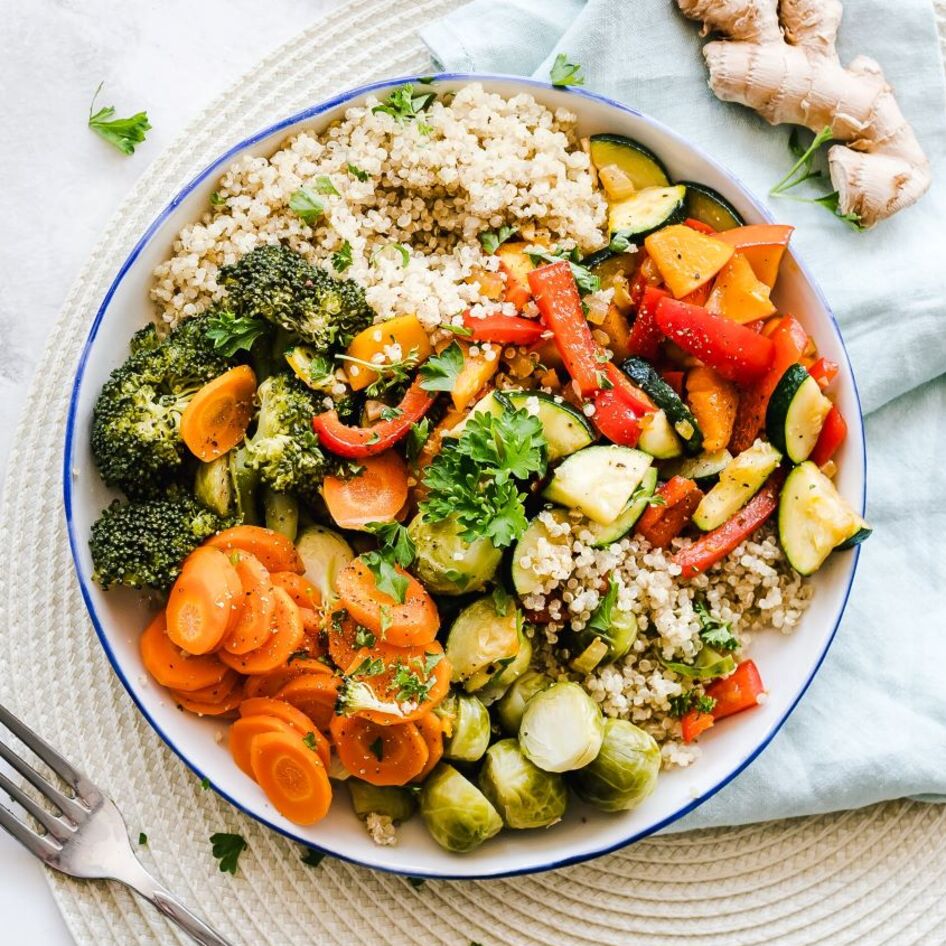Whether it’s a healthier diet, reducing your carbon footprint, or helping to end animal suffering, there are a slew of reasons to choose a vegan lifestyle as your New Year’s resolution. But, similar to many other resolutions, a question arises: where to begin? The answer to this question varies depending on your situation. For instance, if you’re a broke college student, perhaps your meals consists of French fries and Oreo cookies. Or, maybe you’re on a cleanse and want to consume nothing but green drinks. Whatever the case, the most important thing to remember is that a plant-based lifestyle doesn’t come with instructions. As long as you’re helping to end animal exploitation, you’re doing the right thing. However, to help you along in that New Year’s resolution, we’ve devised four ways to start you on a path that will literally change your life. You can thank us later.
1. Crush the stereotypes
Some people equate veganism with people who live on hippie communes. However, nothing could be further from the truth, as there are well-known vegan lawyers, doctors, athletes, writers, musicians, and, yes, hippies. Furthermore, there is this idea that you have to live a certain way or believe certain ideals to be a “real” vegan. Again, this is untrue, as there are no personality prerequisites to leading a plant-based lifestyle. You don’t need to be a health nut, a yoga teacher, millennial, or live in California to care about animals and the environment. In fact, there are so many different types of vegan: raw vegan, whole-foods vegan, low-fat vegan, no-carbohydrate vegan, and the type of vegan who will eat anything as long as it’s plant-based. Often, vegans are lumped together as the same, even though, similar to any other lifestyle group, we are a diverse and varied people.
2. Make your own definition
Once you have proven that there is no such thing as a “stereotypical vegan,” you are on your way to making your own definition for plant-based living. For instance, you might focus on environmental concerns by avoiding plastic because of its harmful impact on nature. Or, you might choose to convince fitness aficionados to eschew whey-based protein powders. Whatever you choose, remember that there’s no such thing as being a “proper vegan,” so long as you are plant-based and against the exploitation of animals. Many nuanced topics plague the vegan community, and it’s impossible to determine the “correct” answer. So, make your own definition, and live vegan by your own values.
3. Do what you need to do
Availability and access to certain resources should not define “good” or “bad” vegans, as we are all doing our best with what we have in order to live a compassionate, eco-friendly lifestyle. And, as vegans, it’s important to remember that not everyone has the resources to go to the farmers’ market, vegan bakery, local soap shop, and bulk store for every grocery trip. Sometimes, a person’s only option is a large, corporate supermarket. For times like these, supporting other people is what’s important, not condemnation.
4. Make a difference
Veganism is a journey with obstacles and hardships. Every situation is different, and if you do your best everyday, you should not feel guilty because of the “perfect” people you see online. Those people also make mistakes like the rest of us, and we are all working for a better world. Learn from your mistakes, and move on. Accidentally eating something that isn’t vegan can be frustrating and horrifying, but, when these things happen, don’t beat yourself up. Reading labels is a large part of this lifestyle, and making this a habit can be difficult if you have never done so before. Instead of getting down on yourself, give yourself credit for working hard to make change and help others.
Kathryn Lunger is a passionate vegan on a mission to help people working toward eco-friendly lifestyles.
JUMP TO ... Latest News | Recipes | Guides | Health | Subscribe







